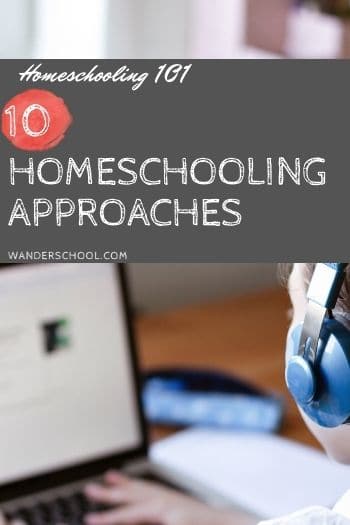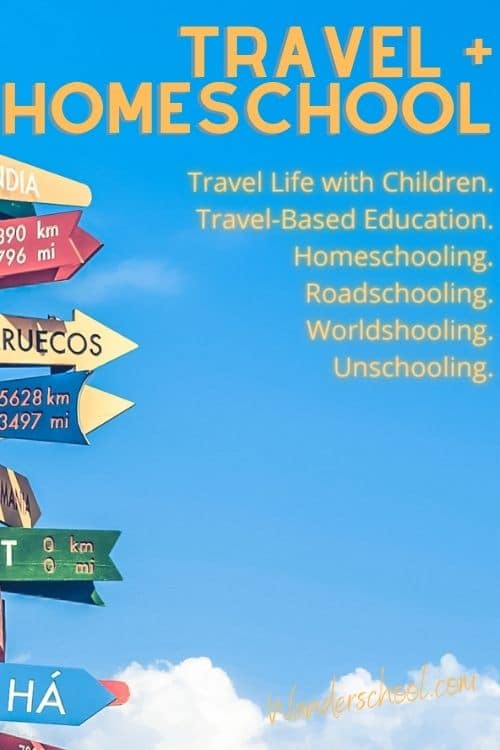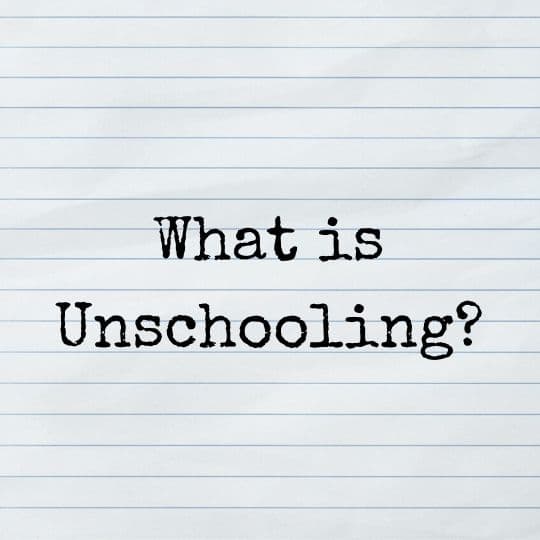Approaches and Philosophies to Homeschooling
As the popularity of homeschooling surges in the United States and around the world, it may come as a surprise to parents, and to people generally curious about homeschooling, that there are many different approaches and philosophies to homeschooling.
How a child is homeschooled can vary dramatically. The homeschooling approach might depend on the child, parent, and family (background, values, income, access to resources, learning abilities, and reasons for homeschooling in the first place). There is no one size fits all approach or philosophy when it comes to homeschooling.
Affiliate Links Disclosure: My posts sometimes contain affiliate links, which mean that if you click on them and make a purchase or sign up for an offering, I may earn a commission, at no added cost to you. I received no compensation for writing this post, and it reflects my own experiences, research, and opinions. You can read my my privacy policy here. Thank you so very much for reading my blog!
Popular Approaches and Philosophies to Homeschooling
There are popular approaches and philosophies to homeschooling. Here are some of those approaches.
Popular Approaches to Homeschooling
1. School at Home.
Sometimes referred to as The Traditional Approach. This approach to homeschooling might resemble “school at home.” For example, parents might create a home classroom, complete with desks, chalkboard, workbooks, and the traditional wall-mounted pencil sharpener.
Parents might teach class each day on a schedule. Also, they might follow a calendar that closely aligns with that of public or private schools. Some parents who are new to homeschooling start off with some aspect of the school at home approach. The reason might be because it is what they know based on their own educational experience. Often these same parents come to relax their school at home approach, as they figure out what style of education and teaching works best for their child and themselves.
2. Biblical/Religious.
Another approach to homeschooling may be shaped or strongly influenced by religion. Homeschool assignments might include scripture work, memorization, dictation, or religious study or work. Sometimes homeschoolers adopting this approach are actively involved in community or church-based homeschool groups, such as local Classical Conversations groups.
It is sometimes assumed, although inaccurately, that all who homeschool do so strictly for religious regions. Religion may be the inspiration or reason behind homeschooling for some families. However, it is not a blanket explanation for every family’s homeschooling decision. Some homeschool families are intentionally secular. Some families choose to integrate religious teachings into other homeschool approaches, such as a Christian Classical Education approach.
There are also homeschool families who do not homeschool for religious reasons, but choose to teach religious studies as part of their child’s education. They may also choose to use curriculum such as free Easy Peasy that offers Bible Study courses as an optional curriculum component.
3. Classical Education.
This approach to homeschooling is sometimes referred to as the Socratic Method, Liberal Arts Education, or a Three-Part (Trivium) Education. Popularized by Susan Wise Bauer, author of The Well-Trained Mind, this approach looks to shape learning into three phases: concrete (K-6th), analytical (7th-8th) and abstract (9th-12th). This three-part approach to education reinforces learning that corresponds to stages in childhood development, with emphasize on notable literature.
4. Waldorf or Waldorf Inspired.
A Waldorf approach to homeschooling encourages children to actively explore their environments, play, and be naturally active and curious at a young age. This approach seeks to later expose children to myths, artistic work, storytelling, and literature.
The Waldorf approach emphasizes holistic learning, weaving together arts, humanities and sciences. Waldorf Founder, Rudolf Steiner believed that the Waldorf approach would educate the whole child: “head, heart and hands.” Electronics are generally not encouraged, especially at young ages. Electronics are typically considered to have a negative impact on learning and development.
5. Montessori.
Homeschooling with a Montessori approach typical reflects the educational ideas and model created by physician, Maria Montessori, in the 1800s. This approach encourages interest learning and choice. It also encourage movement, collaborative learning, and learning in context. For example, this learning might include taking a field trip to learn about water pollution, rather than just simply discussing the topic. Also, the Montessori approach may discourage extrinsic rewards, focusing instead on intrinsic rewards.
Some homeschool parents who apply the Montessori approach set up space in their home to reflect the Montessori method. This might include activity stations. These activity stations might include baskets with knitting supplies, puzzles, or blocks. Additionally, stations might include pencils, paper, scissors, and glue.
6. Charlotte Mason.
The Charlotte Mason approach looks to the use of living books, rather than dry textbooks to teach children at home. Charlotte Mason, a British Educator, believed that children were “not blank slates or empty sacks to be filled with information.”
This homeschooling approach emphasizes learning atmosphere and home environment to shape the education of the child. Additionally, it emphasizes discipline of good habits and life. Furthermore, the Charlotte Mason approach emphasizes literature, language arts skills, history, and science. Additionally, it emphasizes life experiences, nature, narration and dictation, knowledge of God, and short lessons.
7. Unit Studies.
Another approach to homeschooling is to build lessons around specific units or topics of interest, studying a particular topic at length, which might be for an afternoon or for an entire year.
For example, a family might choose to use an entire school year to build lessons around the book ‘Little House on the Prairie.’ The family might study everything from pioneers, such as Lewis and Clark, to how to make homemade candles from local beeswax, or how to make butter. Furthermore, some homeschoolers opt to create lapbooks to complement their unit studies.
8. Technology-based education.
Another approach to homeschooling may involve using technology-based curriculum. This approach may include using pre-packaged curriculum. For example, it might use bundled ‘common core’ curriculum available online or by DVD/CD.
Homeschoolers may use online tutors, such as language tutors at Italki. In addition, they may take virtual classes, such as Zoom classes via Outschool.com. Also, they may take online classes at schools like K12, Calvert School, or Laurel Springs, which offer teacher-led support classes or curriculum. They might take individual math courses at Teaching Textbooks, study at Khan Academy, learn to code at Code Academy, or take AP courses through EdX.
Homeschoolers relying on technology-based education may watch YouTube videos. They may participate in online workshops, camps, or seminars. They may take online music classes, like virtual guitar classes, or participate in online yoga classes. Also, they might be active in online gaming, programming, or social media club, meet-ups, or networks.
9. Roadschooling, Worldschooling or Travel-Based Education.
Despite the word ‘homeschooling,’ many homeschooling families spend much of their time away from home as part of the homeschool learning experience.
For some families, travel is the backbone of the homeschool experience, using travel experiences, locations, sights, and culture to inspire and shape the educational experience. Additionally, some travel-based education families come to rely on the world as the ultimate classroom. And some even consider coffee shops or coffeeshopschooling as part of the classroom.
Check out Wanderschool for an example of travel-based education. It is a blog that follows a family with four children who have grown up learning via travel-based education. One of their epic travel-based education adventures was roadschooling the 50 USA States.
10. Eclectic Homeschooling.
Sometimes referred to as ‘relaxed’ homeschooling, eclectic homeschooling is a popular homeschooling method that sometimes resembles a myriad of approaches. Notably, eclectic homeschooling is a sort of patchwork quilt to education. Specifically, it is an approach that creates an education designed to fit the individual child.
An Eclectic approach is somewhat of a custom approach to homeschooling. Also, it is versatile and flexible. Typically, a parent chooses subjects, materials, activities, extra-curricular opportunities, and classes that suit their child’s or family’s needs and/or interests. A parent may choose to buy curriculum for one subject or for all subjects but from different sources. A parent may use a child-led interest approach for one subject. And then, the parent might use packaged curriculum for another subject. The parent may also sign up the child for a local or virtual class for another subject. And still, a parent might choose library books or independent study to cover another topic.
11. Unschooling.
Unschooling is another educational method and philosophy, sometimes considered a subset of homeschooling, that typically encourages child-led interest and child- initiated learning activities. Note: some argue that unschooling is entirely its own approach. As such, they contend that it is neither ‘homeschooling,’ nor a subset (or on the spectrum) of homeschooling.
The term unschooling was coined in the 1970s by educator and homeschooling proponent, John Holt. John Taylor Gatto, author of the book, Dumbing Us Down, and another proponent of unschooling, makes the case for homeschooling and unschooling (or free range learning).
Within the unschooling approach, there is a full spectrum of approaches and philosophies to this method of education. Also, these approaches range from strong emphasis on learning through curiosity, play, experiences, classes, or books to hands-off parental involvement. Radical unschooling, which may or may not resemble complete child-led learning, may also be an approach.
Share the LOVE – Share This Post
If you enjoyed reading this post, please consider sharing the love! Pin this. Tweet it. Share it with friends, family, or your followers. I really appreciate it! 🙂

Follow Julie on Social Media! 😉
Share your thoughts on the approaches and philosophies to homeschooling. Also, what is your homeschooling approach?
Related Posts You May LOVE
What is Unschooling?
The 10 Best Homeschooling Books for Anyone Considering Homeschooling
Subscribe to the Wanderschool Newletter. Get the latest travel news delivered right to your inbox.






John Holt did not write “Dumbing Us Down”. John Taylor Gatto did. Just as a matter of clarification.
Thank you so much for bringing that mistake to my attention! I’ve corrected it.